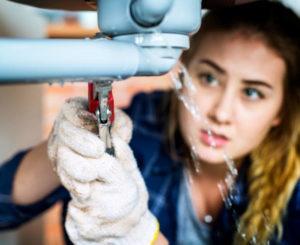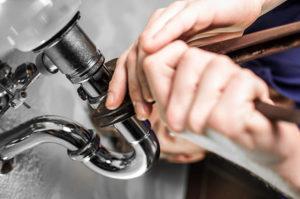The Best Plumbers Rule: Plumbing Demand to Estimate Economic Health
Tips on What to Say When You Call an Emergency Plumber
To prevent damage, call emergency plumbers in my area immediately. Unfortunately, many people still know what to say when contacting emergency plumbing assistance.
Emergency plumber communication suggestions are below.

Provide your name, contact info, and location. Your name and contact information will help the plumber find your residence and reach you if needed.
Explain the issue in detail. Provide as much information as possible, such as the source and severity of a leak or the type of drain obstruction. Accurate descriptions help plumbers find the best solution and bring the right tools.
Give the plumber photos or videos of the issue. This will aid their assessment and decision-making. You can sometimes send a picture or pictures of the situation through a smartphone.
Ask about the expected arrival time. Know when to anticipate emergency plumbers. This will also estimate how long it will take to fix the issue.
Request a quote before the plumber arrives. Know how much emergency plumbing services cost. After inspecting the problem, the plumber should be able to provide a preliminary estimate.
Finally, ask if there are any pre-plumber instructions. For example, if you suspect a gas leak, the plumber may suggest turning off your home’s gas supply. These principles can reduce damage and safety risks.
Standard Plumbing Issues and Their Solutions
Plumbing issues can bother households and businesses. Plumbing systems can have many concerns, from little leaks to catastrophic sewage line backups. First, we’ll examine plumbers’ most typical calls.
Blocked drains are a typical plumbing issue. Hair, soap scum, and food particles cause these in sinks, showers, and toilets. Plungers and drain snakes can clear obstructions, but others require expert assistance.
Leaky faucets waste water and increase water bills. A worn washer, valve seat, or pipe might create a leaking faucet. Plumbers can swiftly find and fix leaks.
Running toilets are another common plumbing issue that wastes water and raises bills.
A broken flapper, float, or fill valve may cause a toilet to run after flushing. A plumber can remedy the problem to save water.
Low Water Pressure: Low water pressure makes showering and dishwashing difficult.
Clogged pipes, rusted plumbing, and broken water heaters can cause this. Plumbers can diagnose and fix water pressure issues
Problems with water heaters: Showers, baths, and dishwashing require hot water.
Leaks, corrosion, and cold water only are water heater issues. Plumbers can check, diagnose, and repair or replace water heaters.
Burst Pipes: Unresolved burst pipes can cause considerable water damage. Frozen, corroded, or high-pressure pipes can cause this.
Plumbers can rapidly repair or replace faulty pipes to prevent further harm.
Sewer Line Backups: Sewer line backups can cause substantial property damage and health risks. Roots, debris, or sewer line damage can create these blockages.
To prevent backups, a plumber can utilize specialized equipment to find and clear the blockage.
What to Do Before Calling a Plumber

Plumbing concerns plague homeowners. Plumbing issues can cause water damage, excessive water bills, and health dangers—however, several precautionary precautions before consulting a plumber could save you time and money.
Try these before calling a plumber:
Turn off the water.
Turn off the water supply to your home if a pipe bursts. This prevents damage and high water bills.
The main water shut-off valve is usually near the water meter or in the front of the house. You can also call the water department if you are unable to turn the water off.
Turn the valve clockwise to stop the water if the valve is a globe valve. But if it is a ball valve you turn it a 1/4 turn to turn it off.
Water heater check
Check your water heater for concerns, including insufficient or overly hot water. Check the gas water heater’s pilot light. The owner’s manual or a plumber can help you inspect your water heater.
Most water heaters have a minimum 6-year warranty. If it is still within the time frame, then call your water heater warranty; the number is usually on the water heater.
Unclog drains.
Clogged drains are frustrating but usually easy to fix. Try a plunger for toilets or a drain snake for sinks before hiring a plumber. If not, try a chemical drain cleaner. Wear gloves and eye protection and follow label instructions.
If you feel uncomfortable with using a hand-held drain snake for the sink. Then it is recommended to call a plumber.
Check the waste disposal.
Clogged garbage disposals need to be fixed. Before calling a plumber, turn off the garbage disposal and use a hex key to remove the clog.
Just make sure it is turned off by inserting into the bottom of the garbage disposal the hex key. Also, never stick your hand in the garbage disposal. It is always recommended to call a plumber.
Check your toilets
Leaky toilets run constantly. Food coloring in the toilet tank helps detect leaks. Leaks occur when bowl water becomes color. Flapper or fill valve replacement frequently fixes this.
Call a plumber when necessary.
Some plumbing issues are easy to remedy, but others require a skilled plumber. Call a plumber if any of these occur:
Burst pipe
Sewer backup
Low pressure
Cold water
Water heater leaks
Gas leak
Leaky pipe
To avoid further damage or health risks, call a plumber immediately.
The Plumbers Rule: A Concept for Estimating Economic Health
The plumber rule is commonly employed in investment to estimate economic performance.
This rule states high plumbing demand implies financial health. Therefore, when plumbers are busy, the economy is reasonable; when they’re not, it isn’t good.
Plumbing services are always needed. Thus the plumber rule applies. Home modifications, including plumbing upgrades, are more likely in good times.
Individuals need more time to do plumbing repairs and other non-essentials in a down economy.
In the 1970s and 1980s, economists and investors used the plumber rule to evaluate the economy. Critics of the plumber rule say technology, demographics, and the economy affect plumbing demand.
Investors still employ the plumber rule to gauge economic health despite its shortcomings.
It is combined with stock market performance, consumer expenditure, and employment numbers to assess the economy’s health.
The plumber rule also predicts economic performance. Plumbers’ demand can anticipate the economy’s future.
The plumber rule may skew particular economies. For example, it may be more accurate in economies where home ownership is higher than renting.
The Common Mistakes in Plumbing: Overusing Drain Cleaners

Plumbing problems are bothersome, and many individuals must catch up on minor mistakes that could lead to more significant concerns.
Overusing drain cleaners is a common plumbing mistake. Drain cleaners can unclog pipes, but improper use might damage your plumbing system. More drain cleaner only sometimes works.
Home drain cleaner overuse corrodes metal or PVC pipes. These cleaners include strong chemicals that damage pipes, causing fractures, leaks, and bursts, especially where their are rubber connections to the drainage.
In addition, most drain cleaners contain dangerous chemicals that harm the environment if improperly disposed of.
As a result, drain cleaner enters the wastewater system and breaks aquatic life.
How to avoid this plumbing mistake? Avoid drain cleansers first. Instead, use a plunger for toilets or a plumbing snake to clear obstructions in your pipes. However, use drain cleaners sparingly and follow the directions. Use only drain cleaner as suggested.
Preventing obstructions also reduces drain cleaner use. Be wary of what you throw down your drainage. Grease, oil, and other things can clog sinks and shower drains. Instead, throw these away.